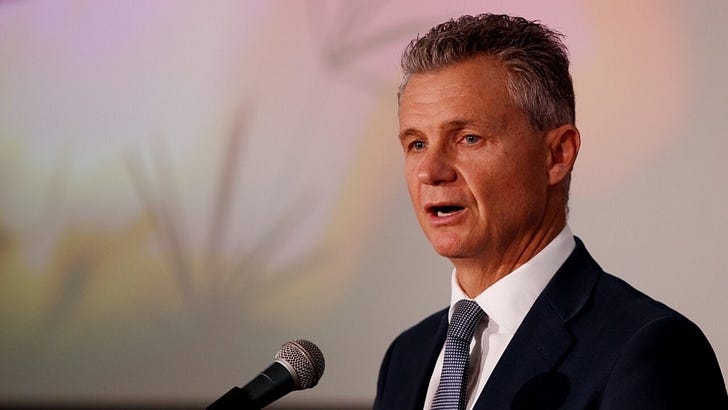The monarchy has won in Australia - and the Commonwealth
Abolition of ridiculous ministry a sign of the times
When the current Labor government was elected in 2022, Anthony Albanese created a portfolio called “Assistant Minister for the Republic” in anticipation that the zeitgeist would favour Australia becoming a republic. After all, the Racial Reckoning of 2020-21 had made it seem a certainty according to some.
But times have changed dramatically. The West is tiring of Woke cults, including CRT, BLM and DEI. Australian voters decisively rejected the Voice in the October 2023 referendum, nearly 24 years after they rejected a republic in a referendum which showed similar voting patterns.
In a cabinet reshuffle, Matt Thistlethwaite has been relieved of this wasteful and absurd post, which has been abolished. In effect, the Labor government is conceding that even if they’re re-elected next year - looking very difficult now, and compounded by Labor’s crisis in Queensland (where they face a massive defeat in the October state election) - there will be no more push for constitutional change.
There you have it. Any talk of a republic or constitutional change akin to the Voice is now dead in Australia, and likely to remain so in our lifetimes. It’s not only in Australia, as other Commonwealth realms such as New Zealand and Canada show similarly little enthusiasm for constitutional debate.
In the 1990s, the zeitgeist of the decade coupled with the apex of the Boomer generation’s political and cultural power was conducive to talk of “progress” and “change” which made talk of a republic fashionable in Australia. We were supposed to move on from our “colonial” British and European heritage and become “part of Asia”. The election of John Howard in 1996 saw a move away from this discourse, and 9/11 and Bali reinforced Australia’s place in the Western political and civilisational bloc.
Similarly, the Quebec sovereignty referendum of 1995 was the culmination of around 30 years of constitutional debate in Canada. In the decades since, talk of this has died down and most Quebecois and Canadians accept the issue as settled. Like the republican movement in Australia, Quebec separatism was very much a Baby Boomer project and did not renew itself.
A similar trend is happening now with Scottish and Catalan independence movements. Their “moments” in 2014 and 2017 respectively had passed, similar to Quebec in 1995 and Australia in 1999. Both have ultimately exhausted the enthusiasm of the electorate, and wars in Ukraine and the Middle East and the phenomenon of hybrid warfare have made secessionist movements in Western democracies especially undesirable. The hybrid warfare waged by Azerbaijan in French territories should also raise the alarm, since Azerbaijan is likely doing something Russia and China would rather not involve themselves in directly.
Last but not least, republicanism in Australia is experiencing a crisis in common with much of the progressive movement since October 7. Both Craig Foster and Nova Peris resigned their positions at ARM, throwing an already weak movement into disarray. They have failed to persuade Australians to embrace their desired change.
So status quo it is, by default. God Save the King.



God save the King, indeed.
King Charles III frequently falls short of his objective right to the realm; but the monarchy that he represents, the Commonwealth we are a apart of, and the structural continuity of Australia’s legal and political systems, are another matter entirely, with the inviolability of each an imperative.
It is encouraging to see that mainstream Australian voters continue to resist the relentless neo-Marxist attempts at cultural and political subjugation, as do our voting peers in many parts of the Commonwealth.
When it really counts, voters overtly push-back against the policy driven self-mutilation proposed by political elites, who are intent on recalibrating the structural fabric of our legal and political systems, while simultaneously destroying our Western values, culture, economy, and even our status as a sovereign nation.